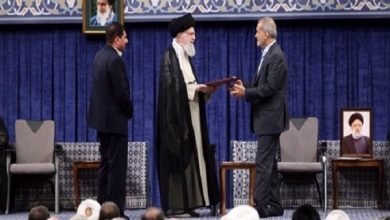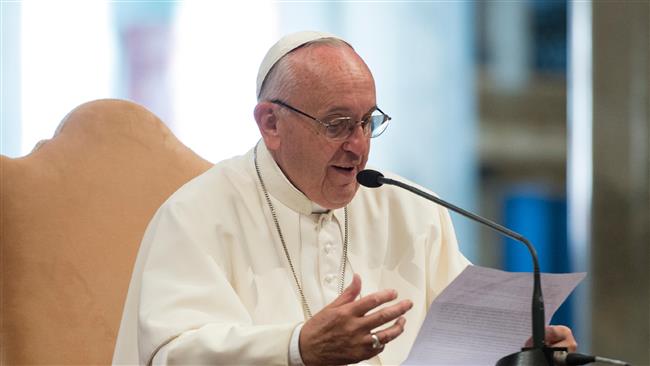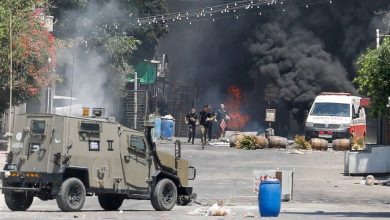Gaza faces power outages as ‘israel’ targets alternative energy sources
In the wake of the conflict that began nearly a year ago, zionist regime has severed all electricity supplies to Gaza, exacerbating the already dire humanitarian situation amidst the continuous violence and devastation.

GAZA, (Palestine Information Center)
Nearly a year into the conflict marked by severe violence and destruction in Gaza, Israel has maintained a blockade that deprives the region of essential electricity supplies. The disruptive measure follows a declaration by Israeli Defense Minister Yoav Gallant, who announced the halt of water, electricity, and food deliveries to Gaza, controversially labeling the local population as “human animals.”
In a continuation of recent conflict, airstrikes have incessantly targeted residential areas in Gaza, resulting in widespread power outages and plunging the region into complete darkness. The loss of electricity has severely disrupted daily life, with residents struggling as their routines are deeply reliant on a steady power supply.
Ongoing Power Crisis in Gaza
The electricity crisis in Gaza is a longstanding issue that predates the current conflict. In 2006, Israeli airstrikes obliterated Gaza’s sole power station, initiating a severe and enduring electricity shortage that has fluctuated in intensity over the years. Israel has consistently leveraged electricity as a strategic component of its blockade, exacerbating the hardships faced by the Gazan population.
Our correspondent indicates that the extensive power outage commenced during the initial week of the conflict, starting on October 7. This disruption occurred following Israel’s decision to sever all electricity lines and close border crossings, effectively halting the supply of fuel needed to run power stations and generators that could serve as alternative energy sources.
**Exploring Viable Alternatives**
Despite enduring relentless conflict and casualties, Palestinians remain steadfast in their efforts to navigate the crisis, seeking innovative solutions to cope with the challenges. Among these solutions, solar panels have emerged as a prominent alternative for power generation. However, the surge in demand has significantly driven up costs. According to Engineer Hassan Abdul Wahab, a specialist in alternative energy systems, the price of solar panels has soared dramatically. A panel with a capacity of 660 watts, which previously retailed for $200 prior to the onset of hostilities, now commands a price exceeding $1,300.
He noted that solar panels are now in short supply, with Israel restricting their entry at border crossings since the onset of the conflict. Prices for cables, brakes, and large batteries have also surged dramatically, in some instances escalating to ten times their initial cost.
Abdul Wahab reports that the price of a medium-sized solar energy system has surged from approximately $4,000 prior to the conflict to over $20,000 in the current market.
Charging Points
Mahmoud Al-Maghrabi, a Palestinian entrepreneur, established a solar-powered charging station and began selling chilled water using his own solar panels before the onset of the current conflict. Despite these alternative energy solutions, Al-Maghrabi asserts they cannot entirely substitute the region’s electricity needs. Gaza has endured an electricity crisis for almost two decades, but the situation has deteriorated significantly with the start of the ongoing war, plunging homes into complete darkness.
Al-Maghrabi has underscored the essential nature of electricity, stressing that life is untenable in its absence. He highlighted the paradox of existing in an era defined by globalization and the digital revolution, yet still grappling with electricity shortages. “We live in the age of globalization and the digital revolution, yet we still have no electricity. What kind of terrorism and criminality is this?” he inquired, decrying the situation as a form of extreme injustice.
Gaza’s electricity demand varies from 400 to 500 megawatts, with peaks reaching 600 megawatts during extreme winter and summer conditions. However, pre-conflict electricity provision from Egyptian and Israeli sources, along with local generation, never surpassed 250 megawatts. This led to a significant shortfall of 50-70%. The impact of this deficit was evident in disrupted power distribution schedules, which have been entirely suspended for almost 11 months following the halt of all electricity supplies.
Fuel Blockade Continues
Amidst the ongoing crisis, Israel has not only severed electricity supplies but also obstructed the delivery of alternative energy resources. Crucially, fuel shipments essential for the operation of hospital generators in Gaza have been halted. Reports indicate that several medical facilities have come under direct airstrike attacks, exacerbating the humanitarian situation.
Our correspondent reveals that throughout the conflict, Israel has frequently focused on structures outfitted with solar panels, with the intent to weaken Palestinian self-sufficiency. The restricted and sluggish fuel supplies from Israel, coupled with significant price surges, have made it exceedingly challenging for certain residents to operate their personal generators. This situation is further exacerbated by a scarcity of spare parts.




